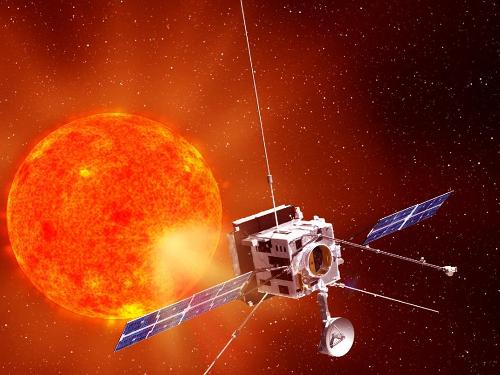Mission to the sun gets £11.5m boost from UK

The government is to put £11.5m into a mission to the sun, the UK Space Agency has announced.
The money will go to British institutions that are developing scientific instruments for the Solar Orbiter mission, which is part of the European Space Agency's 'Cosmic Vision' programme. The mission aims to get closer than ever before to the sun's surface, in a bid to see how the star affects its own heliosphere.

The Solar Orbiter mission is getting £11.5m from the UK government. Image credit: ESA
Solar Orbiter will need ten separate instruments to study the sun from its relatively neighbourly 42 million-kilometre vantage point.
The four to be developed in the UK include: Imperial College London's magnetometer, for studying the solar surface's magnetic field; the Spectral Imaging of the Coronal Environment (SPICE) telescope, on which the Science Technology Facilities Council's RAL Space is leading; and a Plasma Suite and Extreme Ultraviolet Imager, both of which are being worked on by UCL's Mullard Space Science Laboratory (MSSL).
The mission also gives the UK its biggest spacecraft contract in almost a decade, with Astrium Ltd being awarded a €300m (£242m) contract.
"This is a significant project in the UK, with four of the instruments being developed here as well as Astrium's involvement," UK Space Agency chief Chris Castelli said. "The instruments are being produced with a great deal of expertise and will provide exciting new data to further our understanding of the nature of stars and of our small corner of the universe."
Castelli also pointed out that the deals showed "a great return on UK investment into the ESA Cosmic Vision science programme".